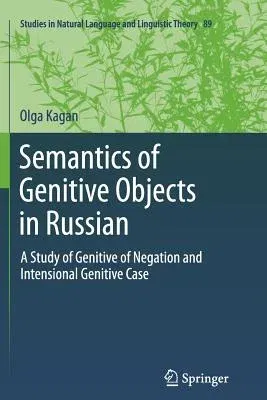Olga Kagan
(Author)Semantics of Genitive Objects in Russian: A Study of Genitive of Negation and Intensional Genitive Case (2013)Paperback - 2013, 9 November 2014

Qty
1
Turbo
Ships in 2 - 3 days
In Stock
Free Delivery
Cash on Delivery
15 Days
Free Returns
Secure Checkout
Part of Series
Studies in Natural Language and Linguistic Theory
Print Length
186 pages
Language
English
Publisher
Springer
Date Published
9 Nov 2014
ISBN-10
9401781958
ISBN-13
9789401781954
Description
Product Details
Author:
Book Edition:
2013
Book Format:
Paperback
Country of Origin:
NL
Date Published:
9 November 2014
Dimensions:
23.39 x
15.6 x
1.12 cm
ISBN-10:
9401781958
ISBN-13:
9789401781954
Language:
English
Location:
Dordrecht
Pages:
186
Publisher:
Weight:
294.83 gm

